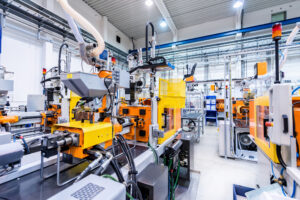The utility of injected molded plastics is an essential trait—you can find these products in virtually every industry and in every part of our daily lives. Plastics enable us to create products and items that offer exceptional advantages and durability in shapes that we couldn’t achieve with other materials in the past. However, for all their utility, plastics also contribute to a growing waste problem: every year, all nations generate nearly half a billion tons of different kinds of plastic waste.
Addressing that waste and its environmental impact is a pressing concern, not only to governments and individuals but to plastic injection molding companies. An alternative philosophy of use called the “circular economy” is developing to combat growing waste and scarcer resources.
With an expanding impact in several spaces, especially the medical sector, circularity in plastics is a critical trend to understand.
What Is Circularity?
In traditional manufacturing, products move through a “linear” life cycle. A company designs a part or product, then it goes through manufacturing. The end user receives the product, uses the product, and then discards it before using a new item.
Particularly in healthcare applications, this linear process has been a critical way to maintain sterility and safety. However, it also generates large volumes of waste.
A circular economy can reduce waste for several reasons. One aspect is design, or the process of making products more durable and more suitable for repeated uses. Another vital aspect is the materials that manufacturers choose. Through recycling, fewer raw materials are necessary for every production run. The incorporation of post-consumer or post-industrial plastics could also lead to lower prices for customers.
Combined with efforts to prevent plastics from going to a landfill, injection molding with recycled plastics is a maturing field that offers many potential benefits.
Achieving Circular Plastics Production
Shifting to circular production requires a fundamental shift in thinking from the traditional method of designing products. Including recycled materials must be a consideration from the very start.
For specialty applications, such as medical devices and products for hospitals, careful selection of the recycled materials is a necessity. While this factor is not as critical a consideration for every industrial application in plastic molding, businesses in every industry should pay close attention to which types of recycled materials they select and where they source those materials.
With a thoughtful design in place, the manufacturing process can proceed in the same manner as it normally would: the only addition is the inclusion of non-raw materials as recycled plastic pellets. Although most current plastic materials can only be recycled a few times before losing their integrity and usefulness, every effort to reduce plastic waste contributes to a positive effect on the environment.
Investing in the Future With Reliant Plastics
Circularity is about more than deciding to invest in products made with recycled materials—it also requires an experienced approach to design and manufacturing. At Reliant Plastics, we have in-depth experience working with a broad range of thermoplastics for injection molding. We are well-equipped and ideally positioned to adapt to, as well as embrace the circular plastics economy. To learn more, contact us today.




